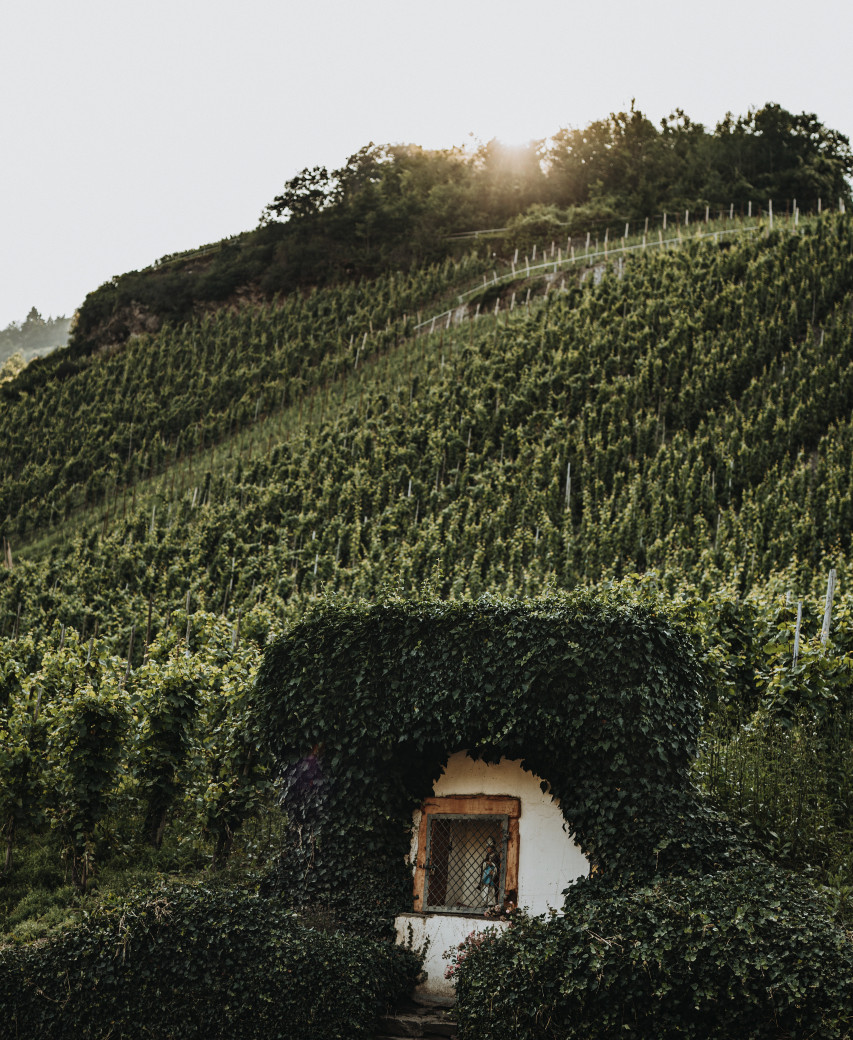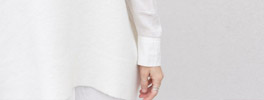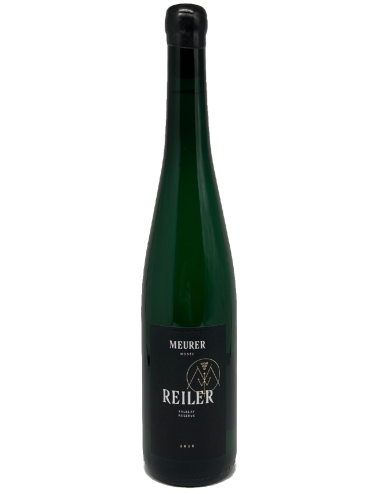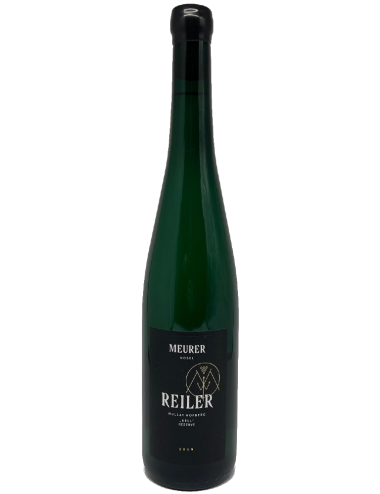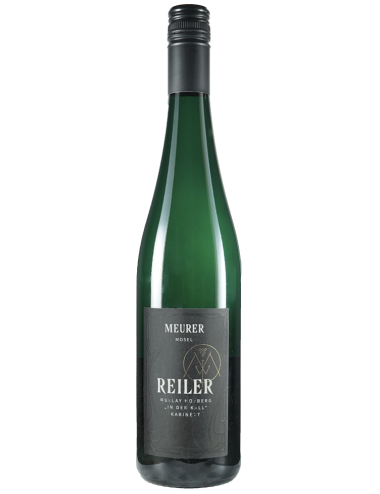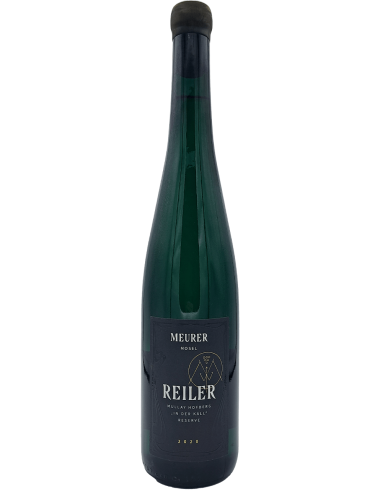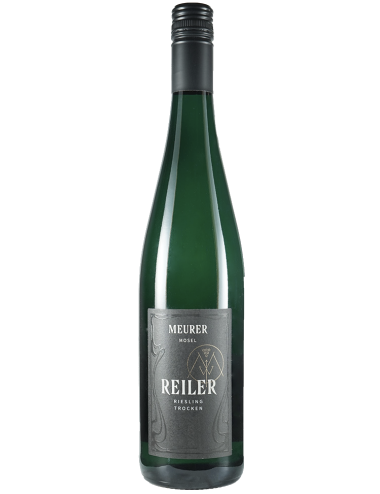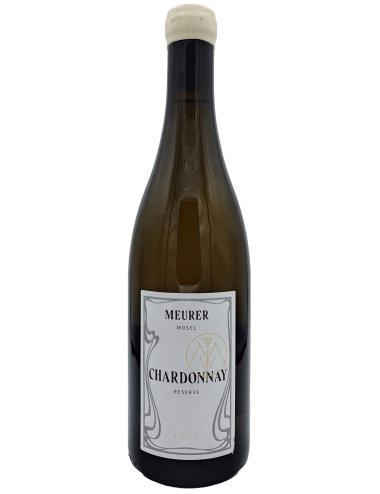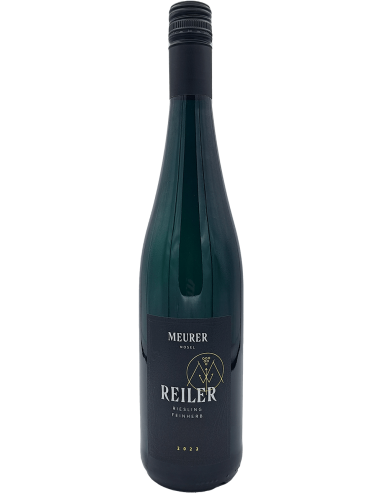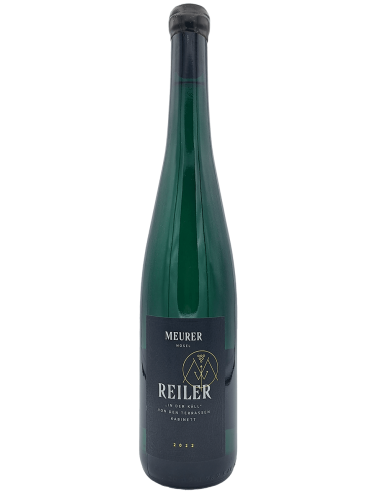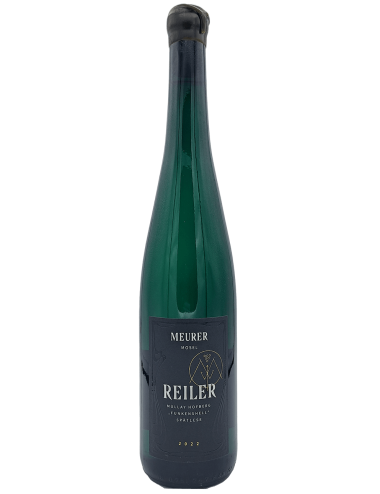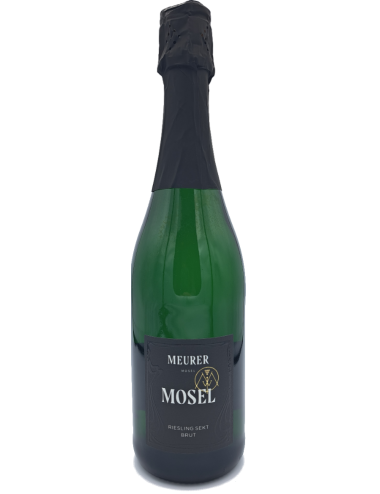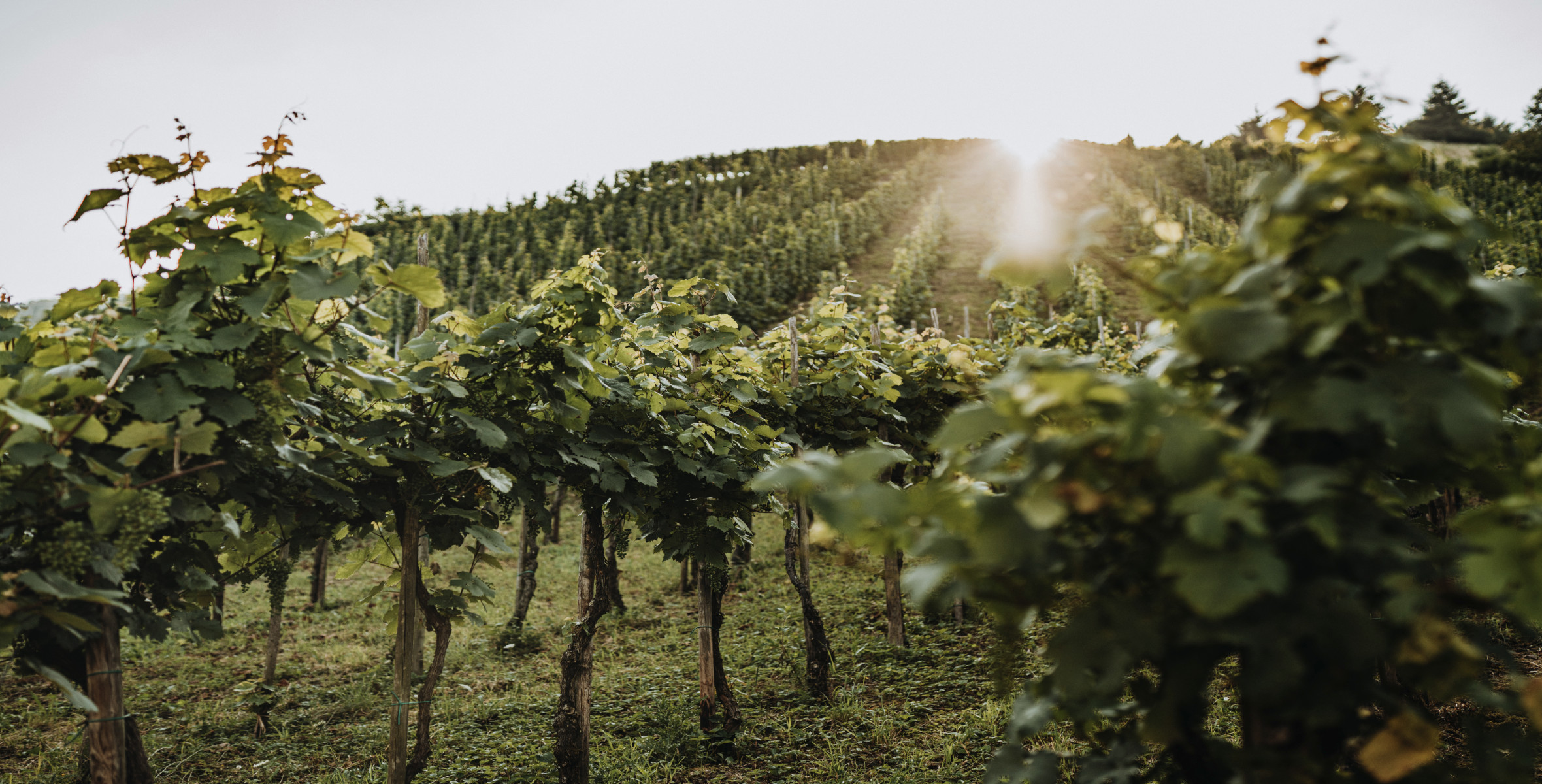
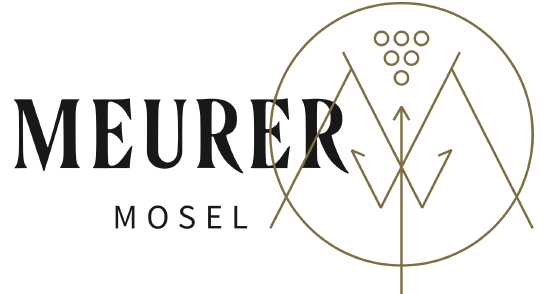
Wine estate Meurer in Reil on the Mosel
The Meurer winery in idyllic Reil on the Middle Moselle has stood for quality, down-to-earthness and a sense of tradition for many years. The incentive to leave the beaten track and create something special is new. With the takeover into the now third generation and a pinch of courage, Amelie and Matthias Meurer create wines that are refined, but also strong in character and origin and reflect their homeland excellently.
-
-
-
-
-
-
-
-
-
Meurer
Mullay-Hofberg "In der Funkenshell" Riesling (late harvest) off-dry 2022
 Riesling
Riesling
 Fruity
€ 22.00
Fruity
€ 22.00
No Product found in this category
No Product found in this category
No Product found in this category
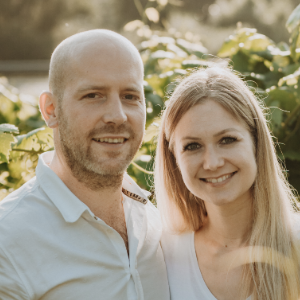
Tradition meets Innovation
Now in the third generation, Amelie and Matthias Meurer run the Meurer Winery in the wine village of Reil on the Moselle. The character of their wines has stood for quality, down-to-earthness and a sense of tradition for many years.
The new generation has set out to combine innovation with tradition and to make wines that reflect the terroir of the steep slopes around Reil, while at the same time being refined and full of character.
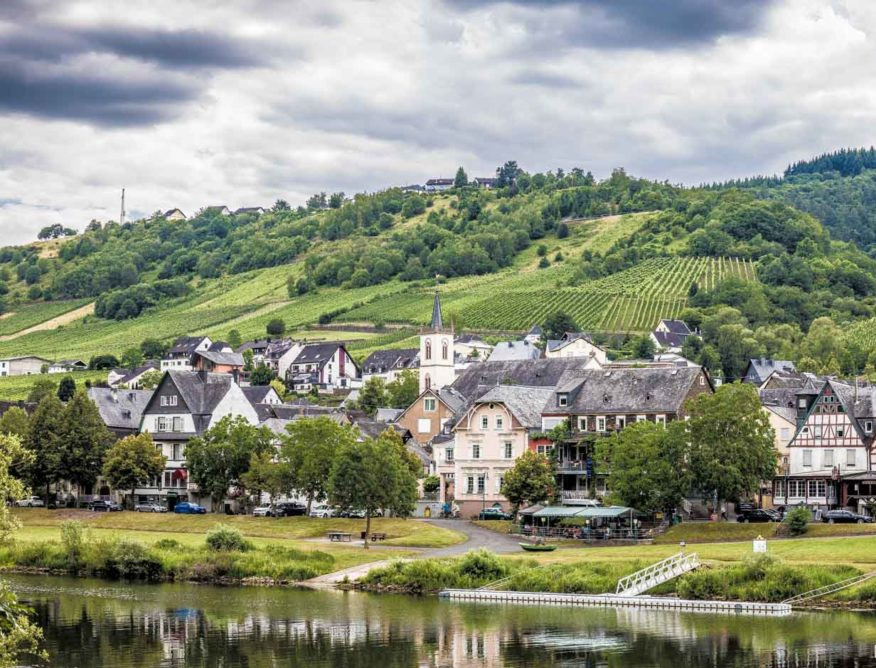
A paradisel and landscape for wines of character in Reil
The Meurer winery has over 3 hectare of vineyards in the Reiler Mullay, Reiler Falklay and Reiler Goldlay sites. The steep slopes ensure an optimal incidence of light on the vines and allow the grapes to become particularly juicy. At the same time, high-quality Devonian slate weathered soils guarantee a good supply of minerals and give the wines their typically fresh, mineral taste. The current wine range includes the grape varieties Riesling, Chardonnay, Pinot Noir, Dornfelder and Bacchus.
Finest Riesling wines from the steep vineyards of Reil on the Mosel
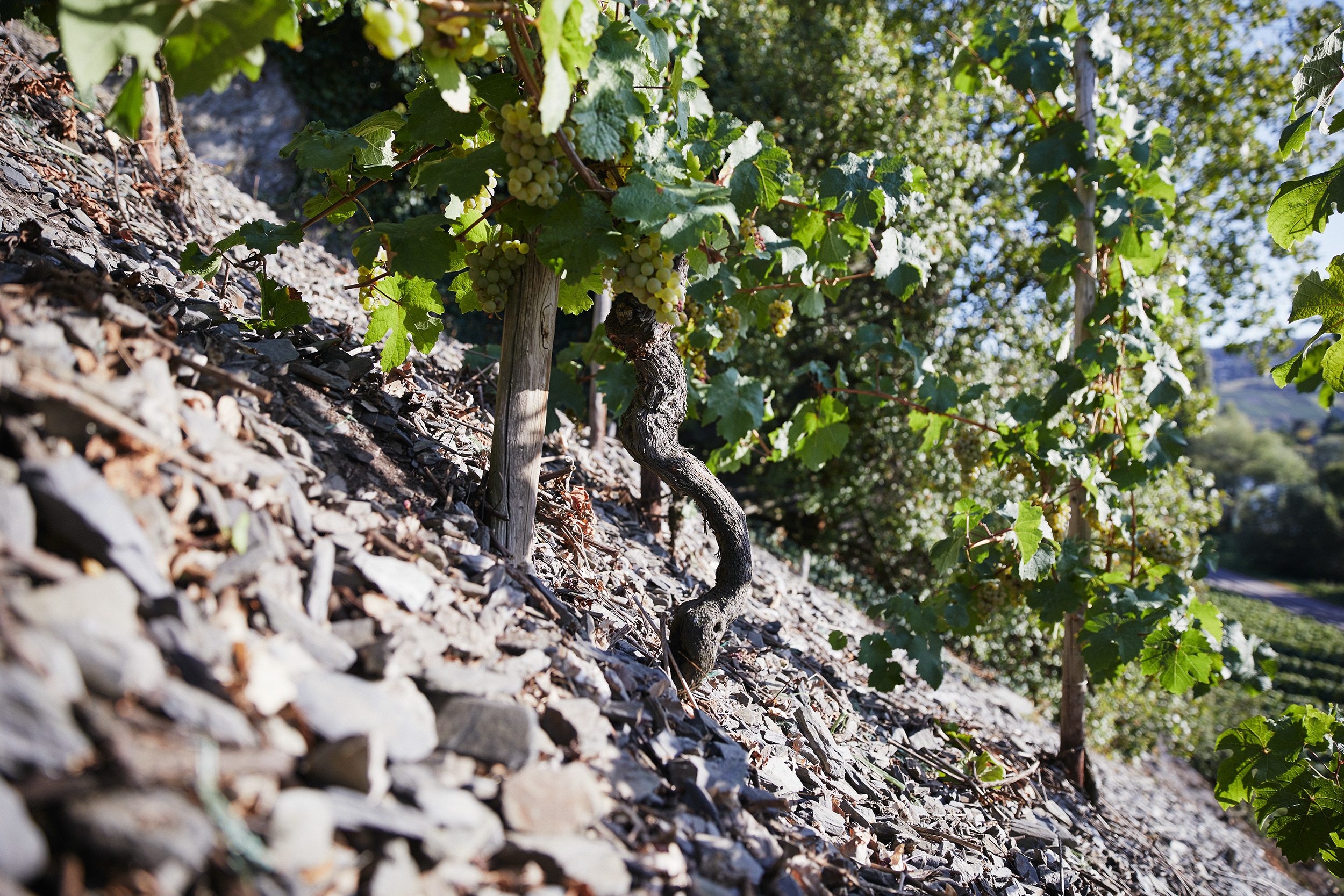
The vineyards around Reil
Reiler Mullay-Hofberg
One of the most expressive sites of the Middle Moselle, the Reiler Mullay-Hofberg impresses with its 16 hectares of terraced land.
Two plots in the Reiler Mullay-Hofberg, "In der Käll" and "In der Funkenshell", are located in the Burgbachtal. Both sites stand for their own very special characteristics, which inspire us again and again.
The vineyard "In der Käll", which occupies 1.2 hectares of the total 2.4 hectares, is located at the mouth of the Burger Bach and thus about 30 metres from the banks of the Moselle. The soil in the left part of the Käll is loamy with a very high proportion of blue slate and protects against drought in summer. The extremely steep slope is special; the quarry opposite protects against wind and against the reflection of the Moselle.
The right part of the Käll is terraced - the soil here is sandy with a good humus layer and has very old vines. Particularly here: the pure southern exposure and open to the Moselle, which means that a constant wind blows and thus there is a high reflection of the sun.
No matter which side - the Käll reliably and consistently produces very fine, highly mineral wines with a strong character: from Kabinett to dry single-vineyard wines.
No matter which side - the Käll reliably and consistently produces very fine, highly mineral wines with a strong character: from Kabinett to dry single-vineyard wines.
Funkenshell
The 2.6-hectare Funkenshell is situated at the upper end of the Burgbach valley at an altitude of up to 280 metres above sea level. The soil here is very sandy with lots of quartz and slate. Here, wines are produced that are delicately floral with a present acidity, which are more similar in taste to the wines of the Saar.
Reiler Falklay
In the Reiler Falklay, the vineyards meander over an area of 79 hectares directly behind the village of Reil. The soil here in the vineyard in the "Pfohlhöll" is very balanced with variegated slate.
Reiler Goldlay
The Goldlay extends with its 25 hectares on the opposite side of Reil. Blue-grey slate and a deep, red clay layer in the subsoil characterise the soil here. This gives the wines a note of ripe yellow fruits. The distinctive westerly exposure with long evening sun and moderate wind, allows the vines to dry quickly after rainfall.
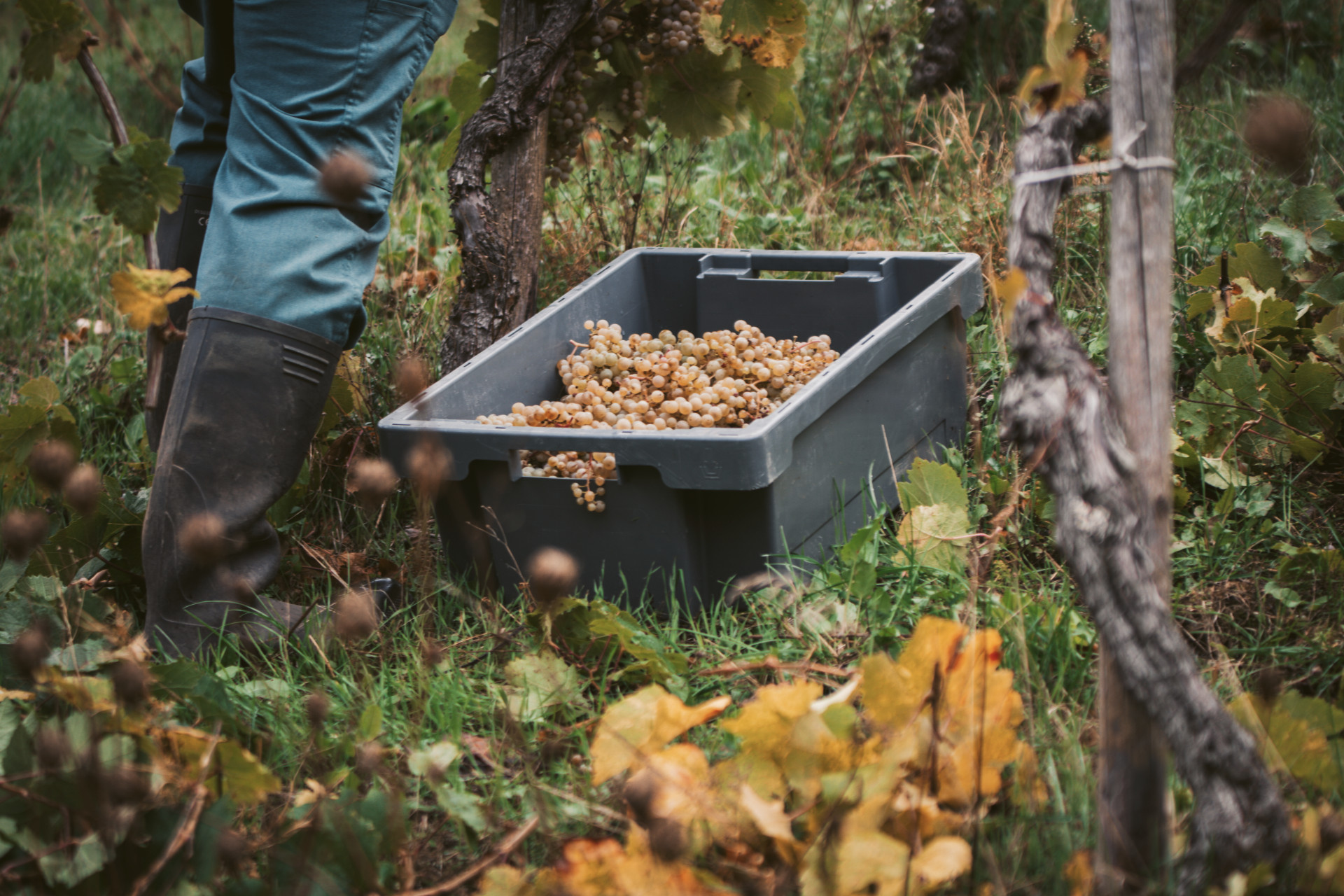
Wine assortment
Riesling
- off-dry
- dry
- Kabinett
Pinot Noir Rosé
Sparkling wine Riesling
The wine making
En tant que domaine viticole mosellan classique, le Riesling est son cépage principal, complété par le Chardonnay, le Pinot Noir et une petite parcelle de Dornfelder et de Bacchus. Les raisins sont tous vendangés à la main et transportés dans des caisses de 30 litres jusqu'au pressoir. Malgré la forte densité de plantation, le rendement moyen est d'à peine 40 hL par hectare.
Les vins secs sont mis en bouteille en tant que Gutswein, Ortswein et Terroirwein - les vins doux résiduels suivent le système allemand des Prädikatsweine.
L'approche individuelle de chaque millésime tient à cœur aux viticulteurs. Ainsi, la vinification s'oriente vers ce que la nature a à offrir pour la production de vin et l'assortiment reste flexible : selon le millésime, les vins peuvent être plutôt légers ou un peu plus corsés.
L'élevage des vins se fait de manière extrêmement douce et avec aussi peu d'interventions que possible dans les processus naturels. Ainsi, les vins secs issus de vignobles sont mis en bouteille sans être filtrés au bout de deux ans seulement.
